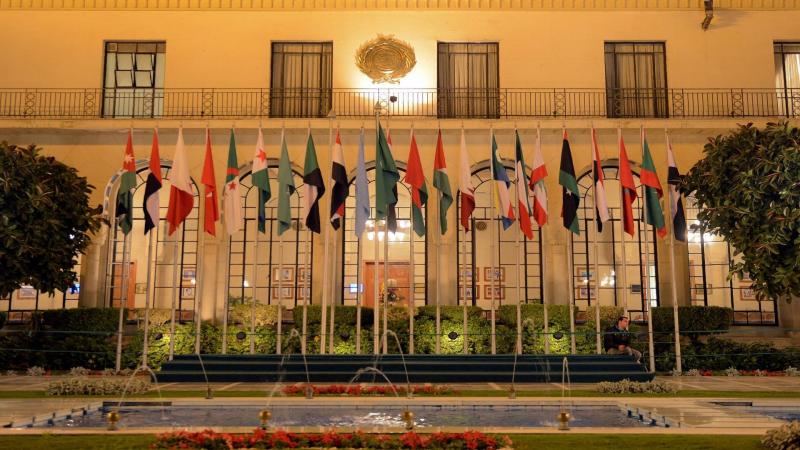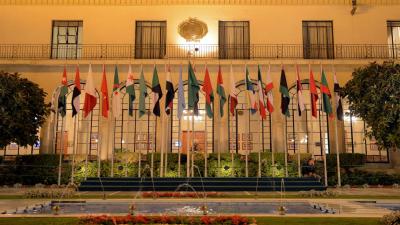Why do some individuals echo revolutionary rhetoric in the Gulf? What is the goal of mobilizing people (both residents and citizens) in Gulf states to chant revolutionary slogans? While anyone has the right to express their opinions, it is also important to understand this phenomenon and critique it. We must comprehend why it is employed, its motives, and its harms, as I see them.
The Gulf states serve as tangible evidence contrary to everything the revolutionaries claim. They are the remaining jewel in a broken shop. The success of the Gulf states is attributed to their listening to the advice of revolutionaries and completely ignoring it. They dismissed the emotional revolutionary discourse and adopted a rational and pragmatic dialogue even in the most difficult circumstances and amid intense provocation and extortion (branding them as agents of the West... complicit with it) aimed at altering their political approach.
Revolutionary discourse has its engines. Revolutionary governments have chosen to attack the West, colonialism, and imperialism for two main purposes: first, to enhance their internal legitimacy, as this populist rhetoric stirs instincts and deceives people. Creating a dangerous external enemy unites the angry masses towards the greater battle, whereby any opposition or differing opinion is merely viewed as treachery and collaboration. The second purpose is to divert attention from internal problems and export them abroad; thus, addressing internal issues is postponed until endless external crises are resolved.
We have seen Arab and foreign governments employ this approach because it is like verbal narcotics: effective and stirs emotional and impulsive crowds. The use of religion is also a winning card in the game of mobilization, prompting governments to leverage extremists to legitimize themselves while presenting themselves as defenders of Islam and its sanctities. Regardless of how dire the internal situation may be, raising the banner of religion suffices to end discussions and adjourn meetings.
Most countries that have employed these national and religious revolutionary slogans have not flourished; some have collapsed entirely. There are many examples around us, from the "Taliban" to Iran, from Saddam’s Iraq to Qaddafi’s Libya, to Bashir’s Sudan, and Nasser’s Egypt. The Gulf states have not used this revolutionary discourse and are currently a destination for those seeking success who flee from countries disrupted by revolutionary rhetoric. They have not created an external enemy to pursue, nor have they exported their internal problems. Their primary battle is development.
Why has this occurred? Simply because they do not need it. First, the Gulf states derive their legitimacy from themselves, as society supports their leadership for historical and social reasons and due to their economic success (evident in their major projects). They do not need to mobilize their people to gain false legitimacy. Therefore, we do not see their leaders giving impassioned speeches about imperialism, even though this would be an easy task.
Second, Gulf states maintain strong political and economic relations with the West. Even though revolutionaries have utilized this relationship to attack and extort them, calling repeatedly for its severance, these ties have not changed; instead, they have evolved and deepened. Third, Gulf states are integrated into the global economy and play a significant role in it (notably, the substantial role Saudi Arabia plays in oil markets and global investments). Therefore, they are part of this flourishing, open world and cannot be against it. No one shoots themselves in the foot.
Gulf states have not employed extremist rhetoric to enhance their status. On the contrary, they currently undertake a significant mission: promoting a tolerant discourse that represents the true essence of religion and is more suitable for humanity than the discourse of violence and provocation that has prevailed in the region for a long time. Extremists have attempted to create from every crisis unrelated to the Gulf states (as is happening in Gaza currently) a pretext for attacking them with the aim of undermining them after their failure to push them to change their rational approach of engaging with and integrating into the world.
What revolutionaries are doing in the Gulf mirrors what revolutionaries are doing abroad: fostering a culture of grievance, blaming others, and treason accusations. They spread conspiratorial thinking and rhetorical proposals, destroying rational and realistic thought, while accusing those who adopt this mindset of heresy. They create a state of harmful popular mobilization and incitement internally, as this will generate angry and resentful people, ultimately serving the revolutionary discourse. They replenish the reservoir of hatred by utilizing noble causes close to people's hearts, but in a way that does not benefit the causes’ rightful owners.
The Gulf states are successful and prosperous, maintaining strong and essential relationships with major powers in the West and East, embracing everyone from every place. They are the shining area where individuals, regardless of their nationalities or religions, can realize their dreams. They are the last refuge in a turbulent and failed region. However, revolutionaries dislike this and seek to promote their discourse within the Gulf in any possible manner. The Gulf is integrated with the flourishing world and is an integral part of it, employing rational and realistic tools to resolve crises. It represents the hope of many Arabs after revolutionary rhetoric tore apart their previously prosperous countries before militia leaders took control. It is correct to support this rational and realistic discourse and stand by it, rather than incite against it in duplicitous ways, as revolutionaries do inside with their elegant attire and deceptive bright smiles.




